The 1960s were the early days of the use of chemotherapy for the treatment of cancer, and oncology was a fledgling field of medicine. At that time Arnoldus Goudsmit, MD, PhD, FASCO, and Fred J. Ansfield, MD, FASCO, were both early pioneers of the use of chemotherapy and sought to learn as much as possible about the use of these anticancer drugs. However, they found that information and educational opportunities were lacking. Presentations and research shared each year at the meetings of the AACR were focused more on pathology and less on patients.
Drs. Goudsmit and Ansfield began to discuss the idea for a new organization with fellow “chemotherapists” Herman A. Freckman, MD, FASCO, and Robert Talley, MD, FASCO. At the first organizational meeting in early 1964—held over lunch in a small room at the Edgewater Beach Hotel in Chicago—they were joined by fellow founders Harry F. Bisel, MD, FASCO, William Wilson, MD, FASCO, and Jane C. Wright, MD, FASCO.
These seven individuals recognized the need to create a new society that would focus solely on issues unique to clinical oncology, specifically the fledgling field of cancer chemotherapy. Turning the focus from pathology and research, ASCO would be dedicated to emphasizing clinical considerations and patient care. This small meeting launched the start of the world's premier oncology organization, which currently has nearly 50,000 members worldwide.
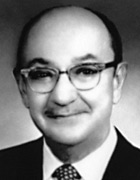 |
Fred J. Ansfield, MD, FASCO | 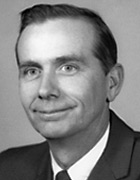 |
Robert Talley, MD, FASCO |
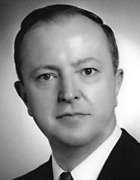 |
Harry F. Bisel, MD, FASCO | 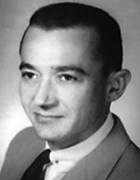 |
William Wilson, MD, FASCO |
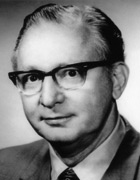 |
Herman H. Freckman, MD, FASCO | 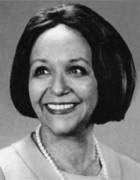 |
Jane C. Wright, MD, FASCO
|
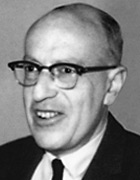 |
Arnoldus Goudsmit, MD, PhD, FASCO |
Establishing a New Society
During those early meetings, each founder was tasked with a responsibility to aid in the establishment of their new Society.
Dr. Goudsmit was responsible for drafting the Society constitution and bylaws, documents that shaped the early mission of the Society and are still reflected in its work today. Early drafts of the founding documents reflect some debate about the Society’s name, with Dr. Goudsmit proposing that it might be called The American Association of Clinical Oncologists. Ultimately, and after much debate with consulting physicians about the inclusion of the word “clinical,” the founders decided on the American Society of Clinical Oncology.
Dr. Freckman was responsible for organizing a membership committee and recruiting new members. Although doubt was expressed about the need for such a society among some of the physicians approached, 51 physicians attended the first meeting of charter members held in November 1964, where they ratified the constitution and bylaws.
Addressing those members, Dr. Goudsmit re-emphasized the importance of establishing ASCO, saying, “A society of clinical oncology, as sketched, when operative, has the potential of becoming the means for advancing and disseminating medical knowledge and contributing greatly to the improved diagnosis, treatment, well-being, and longevity of hundreds and thousands of fellow citizens with neoplastic diseases and to aid in the prevention of many others.”
A Meeting of Minds
As his initial responsibility, Dr. Wilson was put in charge of proposing a budget that would address the creation of a Society journal and other educational initiatives. Among those initiatives was an annual meeting, first conceptualized by Dr. Bisel who suggested that “one full day...be held annually for scientific meeting.” Dr. Talley developed a comprehensive list of contemporary drugs and their application to the treatment of cancer and used this information to develop scientific programming for this annual meeting and other educational initiatives.
The first scientific ASCO Annual Meeting, during which Dr. Bisel presided as the Society’s first president, was held in 1965 in Philadelphia. More than 70 members and invited guests attended the Meeting, which featured three presentations on leukemia and multiple myeloma.
At this meeting, and many others in those early years, Dr. Wright served as the Secretary-Treasurer, a position she held until 1967. Dr. Wright was the only woman and African American among the group of ASCO founders and was the last surviving member—she died in early 2013 at the age of 93. In addition to her contribution to establishing the Society’s core mission and growing its membership, Dr. Wright dedicated her career to scientific investigation with a focus on patient care. In recognition of her contribution to research on cancer chemotherapy, ASCO and the Conquer Cancer Foundation established the Jane C. Wright, MD, Young Investigator Award in 2011. For more information on Dr. Wright, read the ASCO Connection article "In Memoriam: ASCO Remembers Founding Member Dr. Jane Cooke Wright."
More Work to be Done
With ASCO’s membership having grown to nearly 50,000 in the last 50 years, the Society has certainly held true to the vision first set out by its founders, all of whom continued to dedicate their careers to the treatment of patients with cancer.
ASCO and its members have made tremendous strides in the development of breakthrough treatments for cancer. Looking to the future, the Society will dedicate itself to seeing through its founder’s vision, continuing to harness breakthroughs in technology and molecular biology and learn from and achieve better outcomes for patients every day.










